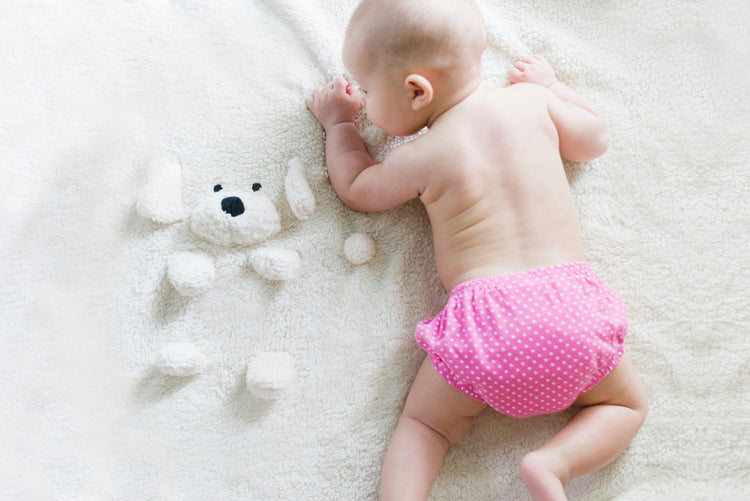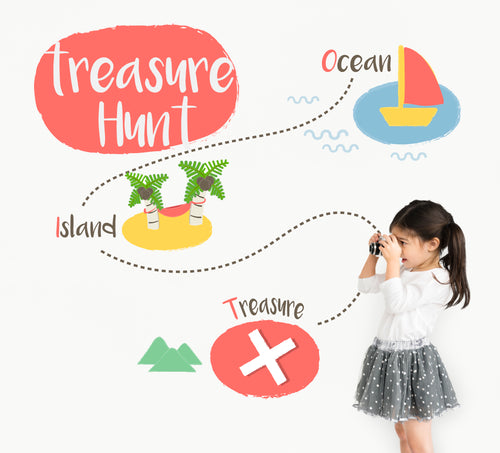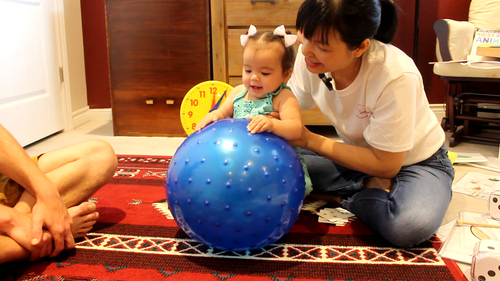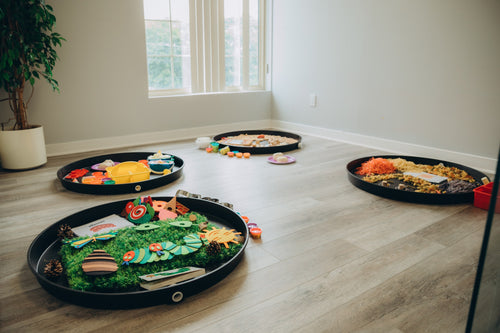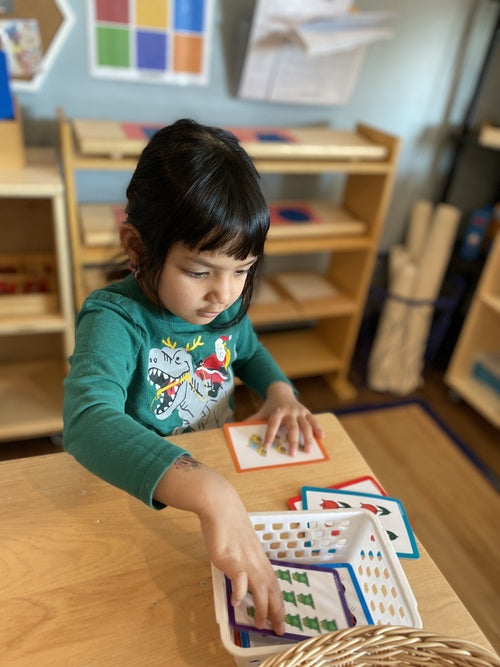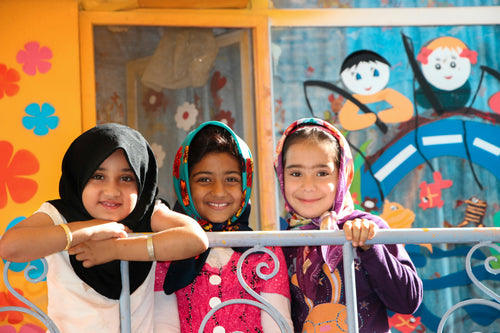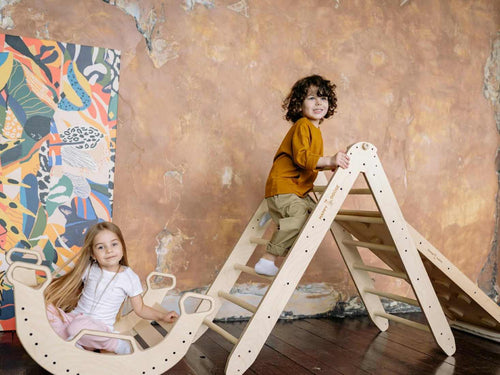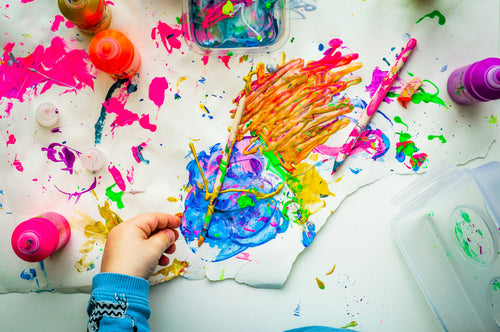Babies are born with a natural curiosity about the world around them. From the moment they open their eyes, they begin to explore their surroundings using all their senses. This exploration is critical to their development, and one of the most effective ways to support this natural curiosity is through sensory play for babies. Sensory play involves activities that stimulate a baby’s senses, such as touch, sight, sound, taste, and smell. These activities help babies build connections in their brain, aiding in cognitive development, language skills, and motor abilities.
In this article, we will explore the importance of sensory play for babies, its benefits, and how parents can incorporate it into everyday life.
What is Sensory Play for babies?
Sensory play is any activity that engages a baby’s senses. This type of play encourages babies to interact with the world around them by stimulating their touch, taste, smell, sight, and hearing. Sensory play can be as simple as letting a baby feel different textures, or as complex as an organized sensory bin filled with objects of various shapes, sizes, and materials.
For example, letting a baby feel soft cotton balls, hear the crinkle of paper, or smell different scents can stimulate their sensory development. Water play, playdough, or even introducing musical instruments like rattles or bells are also excellent examples of sensory play. These activities foster exploration, creativity, and experimentation, providing essential stimulation that supports early brain development.
Learn more about baby's brain development here.
The Benefits of Sensory Play for Babies
1. Cognitive Development
Sensory play is essential for cognitive development. As babies engage in different types of sensory activities, they learn to make sense of the world around them. When a baby touches a soft blanket or a rough sponge, their brain makes connections, helping them understand textures, weights, and temperatures. This type of sensory input builds neural pathways, leading to improved problem-solving skills, memory, and overall cognitive function.
Studies show that sensory play for babies promotes brain development by strengthening the connections between neurons, which are responsible for processing sensory information. Babies who participate in sensory activities tend to have higher levels of focus and better problem-solving skills as they grow.
2. Motor Skill Development
Both fine and gross motor skills are developed through sensory play. Activities like squishing playdough, grasping small objects, or splashing water help babies develop fine motor skills, which are necessary for tasks like holding utensils or drawing. Gross motor skills, such as crawling or walking, are enhanced when babies are encouraged to explore and move during play.
Tactile activities, in particular, are beneficial for babies as they learn how to control the small muscles in their hands and fingers. This will be crucial later on when they start learning to hold a pencil, button a shirt, or use scissors. Sensory play supports the gradual development of both fine and gross motor skills, laying the groundwork for future milestones.
3. Language and Communication Development
One of the often-overlooked benefits of sensory play for babies is its impact on language development. As babies engage in sensory activities, they are exposed to new textures, sounds, and sights. Parents and caregivers can use these opportunities to introduce new vocabulary and concepts. For instance, describing the texture of a bumpy ball or the smell of a flower helps babies associate words with their sensory experiences.
This type of interaction encourages language development by expanding a baby’s vocabulary. Sensory play also promotes social interaction, especially when done with other children or adults, further encouraging communication skills. Babies learn to express themselves, understand the names of objects, and build their listening and comprehension skills.
Explore our right brain training methods to boost children's brain here.
4. Emotional Regulation
Engaging in sensory activities can also have a calming effect on babies. Certain sensory experiences, like playing with water or feeling soft fabrics, can help soothe an overstimulated or anxious baby. Sensory play teaches babies how to regulate their emotions, offering a way to cope with stress and frustration.
For example, playing with sand or water can have a therapeutic effect, helping babies feel relaxed and secure. These soothing sensory experiences support emotional development by giving babies an outlet to express themselves and explore their feelings in a safe environment.
5. Encourages Creativity and Imagination
Sensory play fosters creativity and imagination as babies learn to explore and experiment with their surroundings. When a baby is given different materials, such as colored rice, water, or textured objects, they start to discover new ways to interact with the world. They might mix water with sand or bang on pots to make noise, allowing them to explore cause and effect.
This type of exploratory play is essential for developing creative thinking. Babies who are exposed to a variety of sensory experiences tend to be more curious and imaginative, traits that will serve them well throughout their childhood.
6. Social Skills and Bonding
Sensory play is also an excellent opportunity for social interaction. Whether babies are playing with other children, siblings, or their caregivers, these activities help them develop important social skills. Babies learn to take turns, share, and communicate during sensory play. They also build trust and connection with their caregivers when they engage in sensory activities together, fostering bonding and attachment.
When parents actively participate in sensory activities with their babies, they create meaningful moments of connection. This can strengthen the parent-child bond and provide a sense of security and attachment for the baby.
How to Incorporate Sensory Play into Daily Life
Incorporating sensory play for babies into daily routines doesn’t have to be complicated. Many everyday objects and activities can be used to stimulate your baby’s senses. Here are some simple ideas to get started:
1. Water Play
Water is an excellent tool for sensory play. Whether it's in the bath or using a small basin, let your baby explore water by splashing, pouring, and feeling the different temperatures. You can add bubbles, colorful toys, or even a small sponge to enhance the experience.
2. Textured Toys and Materials
Introduce your baby to a variety of textures by offering toys or objects made of different materials. Soft fabrics, wooden blocks, or textured balls are all great for sensory exploration. You can also create a sensory bin filled with rice, beans, or sand for your baby to touch and explore.
3. Outdoor Exploration
The outdoors is full of sensory experiences. Let your baby feel the grass, hear the rustle of leaves, or smell the flowers. The natural world offers a wide range of sensory stimuli that will engage your baby’s senses and encourage exploration.
4. Music and Sounds
Music is a great way to engage a baby’s auditory senses. Play different types of music or use musical instruments like bells, tambourines, or maracas to introduce new sounds. Singing to your baby and letting them hear the sound of your voice is also a valuable form of sensory play.
5. Messy Play
Don't be afraid to let your baby get messy! Activities like finger painting, playing with mud, or using edible playdough are excellent ways to engage your baby's senses. These messy activities allow babies to explore different textures while enhancing their fine motor skills.
Sensory play for babies at Smartizen
Sensory play for babies is more than just an enjoyable activity—it’s an essential foundation for their cognitive, emotional, and physical development. By engaging in sensory play, babies learn to explore the world around them, sharpen their motor skills, expand their language abilities, and develop emotional resilience. Incorporating sensory play into your child’s daily routine not only enhances their learning experience but also strengthens the bond between you and your little one.
At Smartizen, we understand the importance of sensory play in early childhood development. That’s why we offer specialized sensory play sessions designed to engage your baby’s senses in a safe, stimulating, and nurturing environment. Our expert instructors use a variety of fun, creative activities that promote exploration and discovery, helping your child develop key skills while having fun. From textured materials and sensory bins to interactive music and water play, our programs are tailored to meet your baby’s developmental needs.
If you’re looking to provide your child with the best start in life, consider joining Smartizen’s sensory play services. Our engaging classes are available for babies and toddlers, and they offer an excellent opportunity for both parents and children to enjoy learning together. Sign up today and watch your little one thrive through the power of sensory play for babies! Book our sensory play here or drop in anytime.

